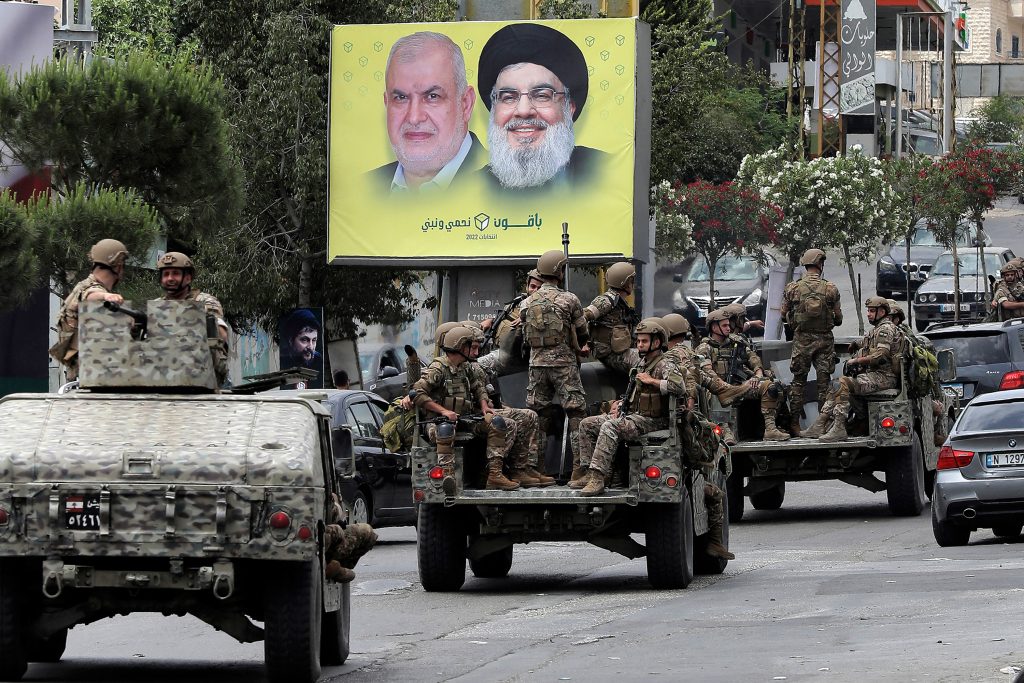Will Hezbollah’s election setback change anything in Lebanon?

The country’s new parliament remains largely split between pro-Iran and pro-Saudi blocs. Hezbollah still commands the largest single parliamentary bloc and the new political makeup signals that the country is headed, yet again, for aThe country is at a crossroads. It could experience more of the instability that of the last nearly two-decades: a series of deadlocks that exact huge losses on the Lebanese economy. On the other hand, the new parliament also raises the specter of what had previously been unimaginable — a political retreat by Hezbollah. That is a move that critics of the group, as well as some of its supporters, would like to see. Hezbollah should be pleased it lost its “illusory majority” in parliament, said pro-Hezbollah analyst Salem Zahran in an interview with Lebanese broadcaster LBC on Tuesday. Establishing a political distance from the spiraling crisis could help Hezbollah bolster its popularity, he said. Other analysts say a political withdrawal could also facilitate a government formation process that is currently underway and ward off further turbulence. “It can be an opportunity for Hezbollah to concede tactically for some kind of economic recovery that buys this country some time,” said University of London researcher Ibrahim Halawi. “Because otherwise it’s a stalemate and it will be very costly on a system that is already feeling the burden of the economic crisis.” Either way, the larger implications of last weekend’s vote are clear. Overwhelmingly, observers see the election as an indictment of a political elite that includes both Hezbollah’s coalition and its traditional rivals. Whether Lebanon’s leaders will address that and change course will determine the country’s fate. CNN’s Ben Wedeman and Charbel Mallo contributed reporting The digest Clashes erupt in Libya as parliament-appointed prime minister tries to take over the capital Violence engulfed Libya’s capital on Tuesday when parliament-appointed Prime Minister Fathi Bashagha tried to take over the government in Tripoli, but was forced back by UN-backed Prime Minister Abdulhamid al-Dbeibah and his rival administration, which refuses to cede power. Background: After two months of stalemate between Libya’s rival administrations in the east and the west of the country, Bashagha tried to enter Tripoli overnight but withdrew after fighting broke out. Bashagha had said he would not use violence to take over the capital. Why it matters: The violence between both administrations brings back memories of a partitioned Libya, which saw deadly fighting in 2020 when then-commander of the east Khalifa Haftar launched an attack on the capital, west of the country. The current political deadlock has also already led to a partial blockade of Libya’s oil facilities, slashing the country’s main source of foreign revenue in half. Iran state TV airs footage of French couple accused of spying Iran’s state television on Tuesday showed what it described as details of the arrest of two French citizens earlier this month, saying they were spies who had sought to stir up unrest. Background: Iran said it had arrested two Europeans for allegedly fomenting unrest “by organizing trade union protests.” France has condemned their detention as baseless and demanded their immediate release. Why it matters: The incident is likely to complicate ties between Iran and France as wider talks on reviving a nuclear deal stall. Two other French nationals are being held in Iran on national security charges. At least 70 injured as Palestinians and Israeli police clash around funeral At least 20 people were arrested around violent clashes between Palestinians and Israeli forces in East Jerusalem on Monday night, including five suspects in an attempted car ramming event, Israel Police said on Tuesday. The Palestinian Red Crescent said on Monday that 71 Palestinians were injured during the clashes, which took place around a funeral. Background: Six police officers were injured during the confrontations on Monday, including two who required medical treatment, Israeli police said. The violence erupted around the funeral of Walid Al-Sharif, 23, who died on Saturday in hospital from injuries sustained during unrest at Jerusalem’s Al Aqsa mosque compound last month. Why it matters: The violence came just days after clashes between Israeli forces and Palestinians at the funeral of Al Jazeera journalist Shireen Abu Akleh. Abu Akleh was shot in the head in the West Bank as she covered an Israeli military raid. What to watch “Sexual violence is a weapon of war to destroy communities,” says Iraqi Yazidi activist Nadia Murad, who is working to make sure oppressive regimes are held accountable for their crimes. Watch her interview here: Around the region


